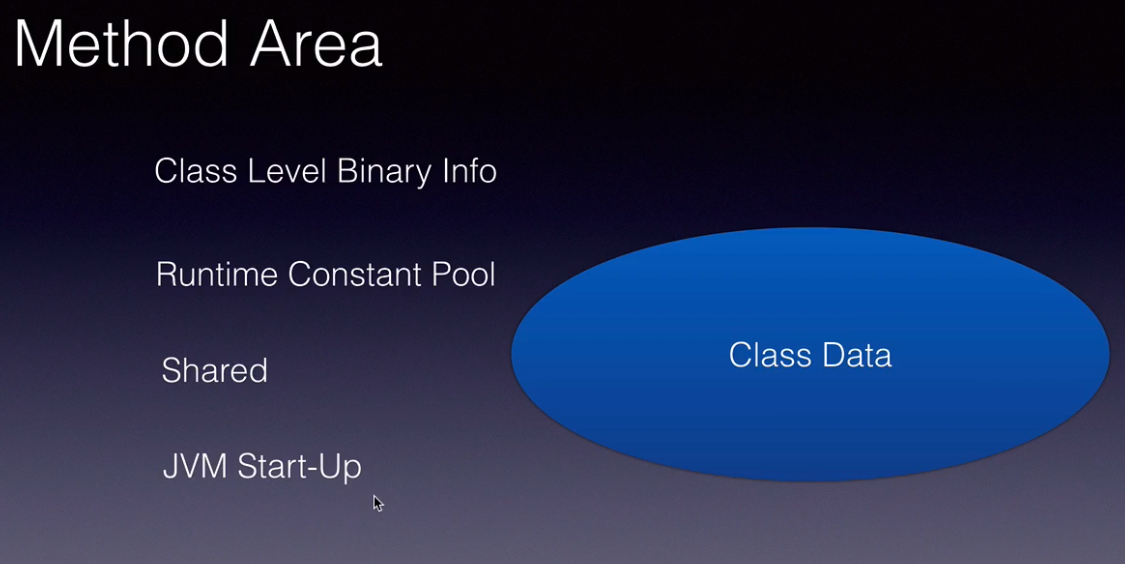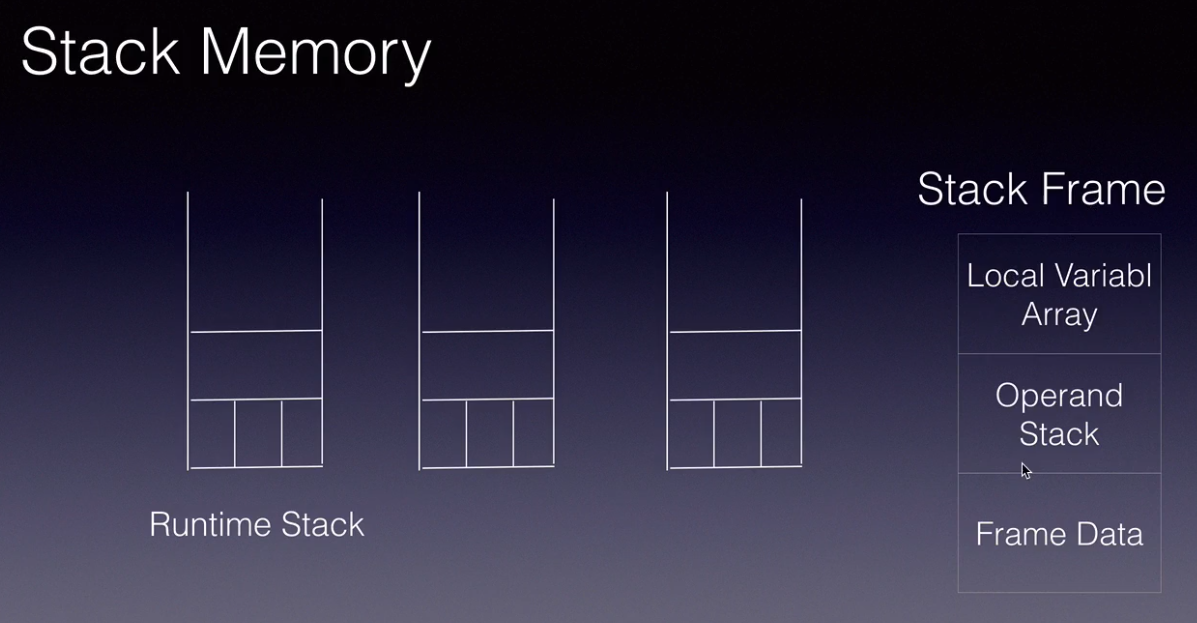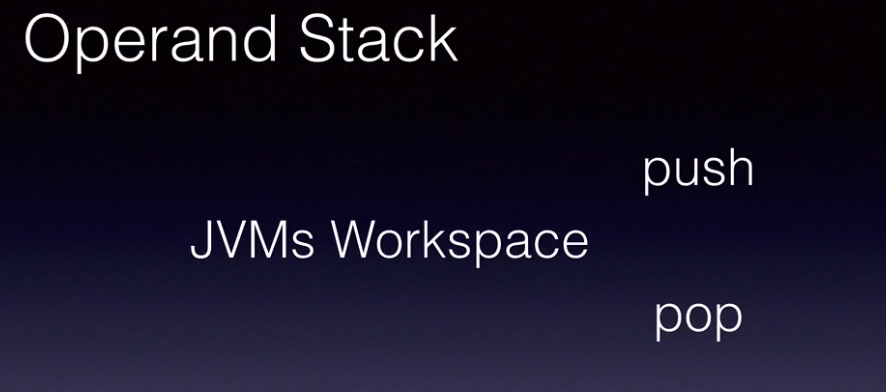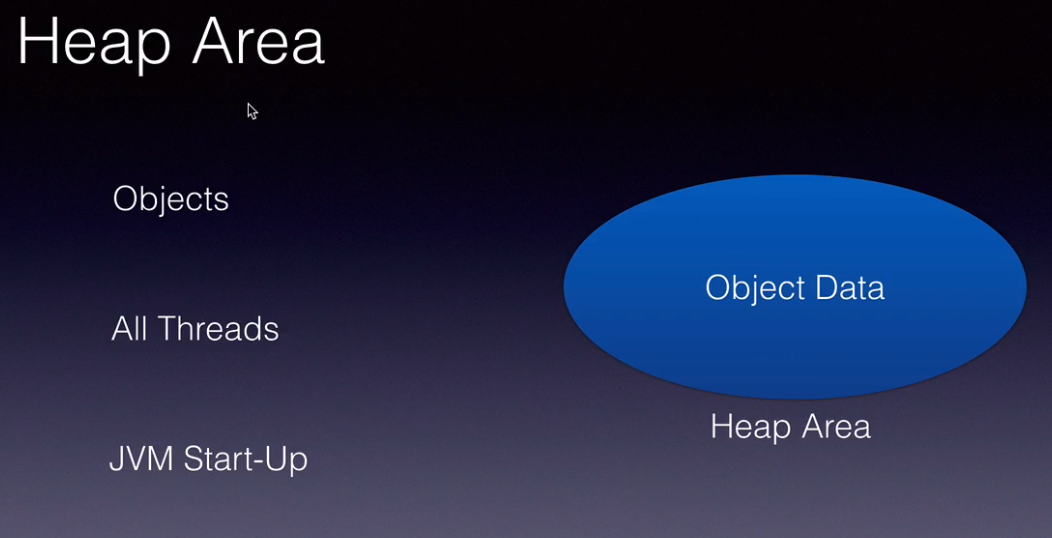shared by all threads: method area, heap memory, native method call
owned by one thread: stack memory, PC register
Method area
This area is shared across multiple threads and the method area is created right
when the JVM starts up.

Stack Memory
store method calls and local variable
one for each thread
each method has a stack frame.
 stack frame has three parts:
stack frame has three parts:
Local Variable Array
The Local variable array contains all the parameters and local variables of a method. Each block in this array
is of 4 bytes. To store integers and floating point numbers,
one block is enough because they take 4 bytes. To store double and long.
we need 2 blocks because we need 8 bytes to store them. Byte, short and char are converted into
integer and they are stored using 1 block.

Operand Stack
So it pushes and pops, pops and pushes operands while
performing various operations based on the statements we put in the code.
Frame Data
It contains a Constant Pool information of a particular method.
It also contains the reference to Exception table.
That is, it provides the corresponding catch block information in case of exceptions at runtime.
Heap Memory
All the objects that are created in our application are stored in the heap area.
If we as developers can do any damage, that is to the heap area as well as the stack area. All the threads can access
this area and they share it.
And this area is also created during JVM startup.

PC Register Area
PC Registers stand for Program Counter Registers and they store the address of the current executing
instruction. Every thread will have its own PC Register.
And once the instruction execution is completed, the PC register will be incremented to the address of
the next instruction that should be executed.
Native Method Stack
store any native method call information. That is, calls
into other language methods such as C and C++ which we use doing Java native interface.
One per thread
